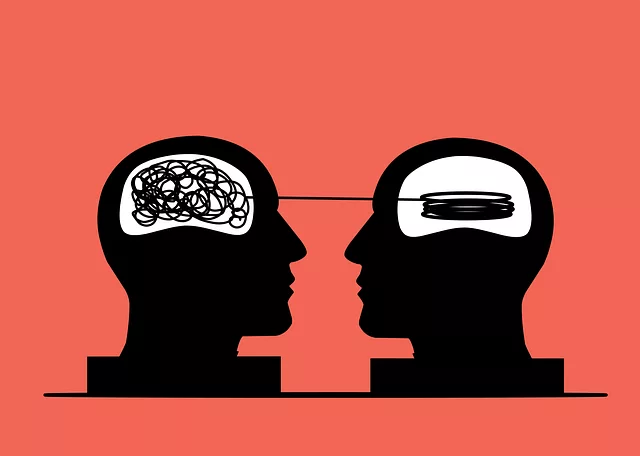Mental illness media representation is a complex issue with significant implications, as inaccurate portrayals can fuel stigma and discourage help-seeking behaviors. Organizations like Kaiser Permanente play a vital role in promoting accurate narratives through accessible behavioral health phone numbers and initiatives that integrate burnout prevention techniques into mental health campaigns. In Boulder, these resources empower individuals to manage their emotional well-being while challenging societal norms, fostering more inclusive conversations about mental health. Collaborative efforts with media outlets are crucial for developing respectful, empathetic narratives that normalize therapeutic practices and support-seeking.
In today’s digital age, media representation of mental illness plays a pivotal role in shaping public understanding. This article delves into the current landscape of mental health portrayal in media, highlighting its significant impact on societal perceptions. We explore how misrepresentation can fuel stigma and misconceptions, emphasizing the need for accurate information. One valuable resource, the Kaiser Permanente Behavioral Health Phone Number Boulder, offers guidance to those seeking support. Additionally, we provide strategies to enhance positive mental illness representation in media, fostering a more informed and compassionate society.
- Understanding Mental Illness Representation in Media: The Current Scenario
- The Impact of Misrepresentation: Stigmatization and Misconceptions
- Kaiser Permanente Behavioral Health Phone Number Boulder: A Resource for Accurate Information
- Strategies to Enhance Positive Mental Illness Portrayal in Media
Understanding Mental Illness Representation in Media: The Current Scenario

Mental illness representation in media has long been a topic of scrutiny and debate. The current scenario reveals a mixed picture where, on one hand, there is increasing awareness and attempts to portray mental health issues with more nuance and sensitivity. However, stereotypes and misinformation still prevail. Media often reduces complex conditions to simplistic narratives, perpetuating myths that can further stigmatize individuals struggling with their mental health. This lack of accurate representation poses significant challenges, especially when it comes to understanding the nuances of various disorders and the diverse experiences of those affected.
The impact of media portrayal is far-reaching, influencing public perception and shaping attitudes towards people with mental illness. It plays a crucial role in either fostering empathy or reinforcing negative stereotypes. In light of this, organizations like Kaiser Permanente behavioral health phone number Boulder are taking initiative to address the gap by promoting accurate and diverse storytelling. Burnout prevention and emotional well-being promotion techniques, such as stress management workshops, can be integrated into media campaigns to encourage a healthier dialogue around mental health. This shift towards more responsible representation is essential for creating an inclusive environment that supports those dealing with mental illness while challenging societal norms.
The Impact of Misrepresentation: Stigmatization and Misconceptions

The impact of inaccurate or stereotypical portrayals of mental illness in media can be profound and far-reaching. When depicted through a lens of sensationalism or misunderstanding, it contributes to the perpetuation of stigma and misconceptions among the general public. This is particularly concerning for individuals living with these conditions who often face challenges in seeking support due to societal shame. For instance, someone struggling with anxiety might internalize the negative representations in media and believe they are weak or overreacting, hindering their willingness to reach out for professional help.
Such misinformation can shape public perceptions, leading to further isolation and barriers to treatment. This is where organizations like Kaiser Permanente behavioral health phone numbers in Boulder play a vital role in providing accessible resources. By offering support lines and services focused on mental well-being, they contribute to Mental Illness Stigma Reduction Efforts, empowering individuals with knowledge about emotional regulation and mood management techniques to combat these societal challenges.
Kaiser Permanente Behavioral Health Phone Number Boulder: A Resource for Accurate Information

In Boulder, Colorado, individuals seeking accurate information and support for mental health concerns can turn to a valuable resource: the Kaiser Permanente Behavioral Health Phone Number. This dedicated line offers a confidential space for individuals to connect with trained professionals who can provide guidance and resources tailored to their specific needs. By reaching out to this number, folks gain access to evidence-based practices and expertise aimed at improving emotional well-being promotion techniques, all while fostering a sense of empathy building strategies that are culturally sensitive in mental healthcare practice.
The availability of the Kaiser Permanente behavioral health phone number Boulder underscores a commitment to ensuring that mental illness representation in media challenges are met with accurate and accessible solutions. It serves as a beacon for those navigating complex emotional landscapes, offering not just information but a listening ear and practical steps towards healing and recovery.
Strategies to Enhance Positive Mental Illness Portrayal in Media

The media plays a pivotal role in shaping public perception about mental health issues. To challenge negative stereotypes and promote Mental Health Awareness, a shift is needed towards more nuanced and accurate representation. One effective strategy is to involve individuals with lived experiences of mental illness as consultants or contributors during production. This ensures authenticity and allows for powerful storytelling that reflects reality. Additionally, incorporating Mindfulness Meditation practices within media content can subtly convey coping mechanisms and promote a sense of calm, thereby normalizing these therapeutic approaches.
Organizations like Kaiser Permanente behavioral health phone number Boulder can lead the charge by collaborating with media outlets to develop Communication Strategies that emphasize empathy and sensitivity. By fostering open dialogues about mental illness, media platforms can contribute to breaking down barriers and encouraging individuals to seek support. Such collaborative efforts are essential steps towards creating a more inclusive narrative that respects the diversity of experiences within the mental health community.
Mental illness representation in media has a profound impact on societal perceptions and attitudes. Misrepresentation can lead to stigmatization and perpetuate harmful misconceptions, while accurate and positive portrayals can foster understanding and support. By utilizing resources like the Kaiser Permanente Behavioral Health Phone Number Boulder, media outlets can access reliable information to create more nuanced and empathetic narratives. Adopting strategies that promote diverse, authentic, and sensitive mental health storytelling is crucial for a more inclusive and informed society.






